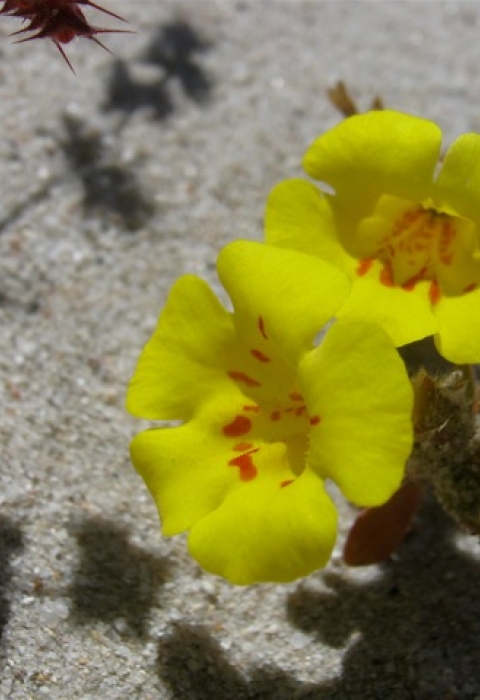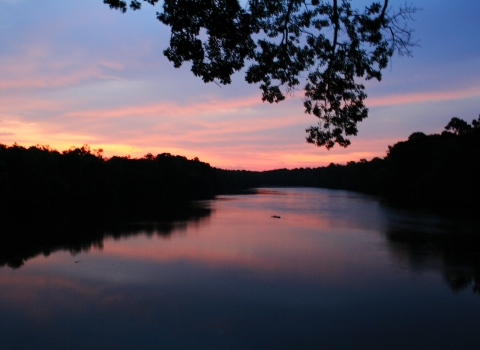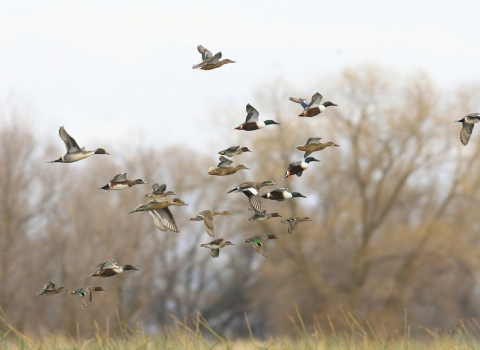Ventura, Calif.- The U.S. Fish and Wildlife Service released a draft recovery plan and associated recovery implementation strategy for the conservation and recovery of Vandenberg monkeyflower, a federally endangered plant. Recovery plans are required for federally listed species and identify recovery actions that, when implemented, will achieve the plan’s goals for conservation and persistence of the species.
"Our strategy is to systematically increase the monkeyflower’s population and ability to withstand potential threats until it is able to become self-sustaining throughout all of the areas where it is found," said Kristie Scarazzo, botanist with the Ventura Fish and Wildlife Office. "We are committed to working with our partners to effectively manage the populations adaptively, as we learn what is most likely to achieve recovery throughout the plant’s small range of habitat."
Vandenberg monkeyflower (Diplacus vandenbergensis) is an herbaceous annual plant, endemic to the Burton Mesa landform in southwestern Santa Barbara County, California. The primary threats to this species include invasive species invasive species
An invasive species is any plant or animal that has spread or been introduced into a new area where they are, or could, cause harm to the environment, economy, or human, animal, or plant health. Their unwelcome presence can destroy ecosystems and cost millions of dollars.
Learn more about invasive species , anthropogenic fire, recreation and other human activities, habitat loss from development (including military, state and residential), utility and pipeline maintenance and climate change climate change
Climate change includes both global warming driven by human-induced emissions of greenhouse gases and the resulting large-scale shifts in weather patterns. Though there have been previous periods of climatic change, since the mid-20th century humans have had an unprecedented impact on Earth's climate system and caused change on a global scale.
Learn more about climate change .
The draft recovery plan will publish in ECOS ECOS
Environmental Conservation Online System (ECOS) serves a variety of reports related to FWS Threatened and Endangered Species.
Learn more about ECOS on February 23, 2024 opening a 30-day public comment period. The Service will consider comments from all interested parties received by March 25, 2024. Comments may be submitted by email to fw8ventura-recoverycomments@fws.gov or U.S. mail to Field Supervisor, Ventura Fish and Wildlife Office, U.S. Fish and Wildlife Service, 2493 Portola Road Suite B, Ventura CA, 93003. A copy of the draft recovery plan is available here.
Established in 1987, the U.S. Fish and Wildlife Service’s Ventura field office works to conserve and protect threatened and endangered fish, wildlife and plants across the southern and central California coast, collaborating with communities and conservation partners to build a future that supports both people and our unique and diverse natural landscapes. To stay up-to-date on the conservation work of our staff like us on Facebook.



